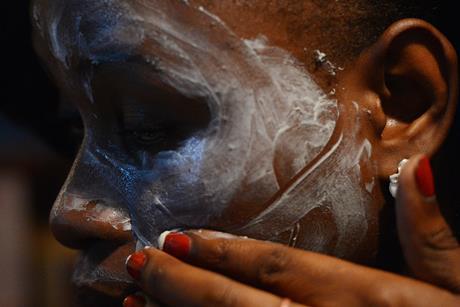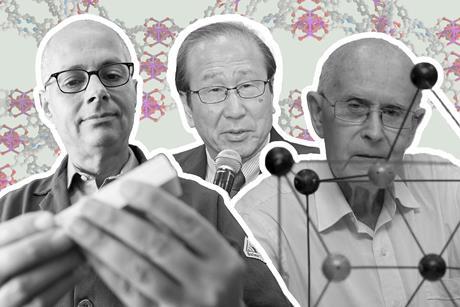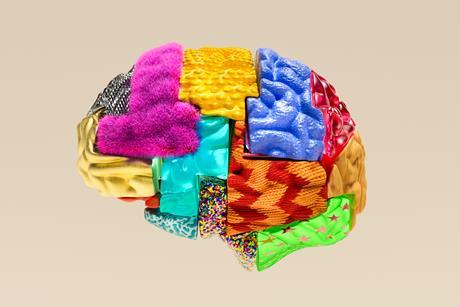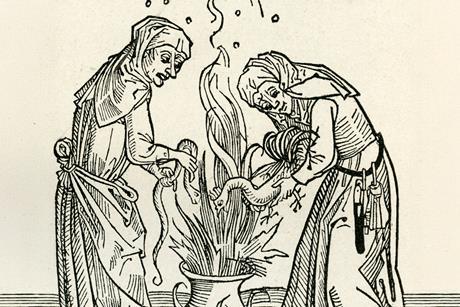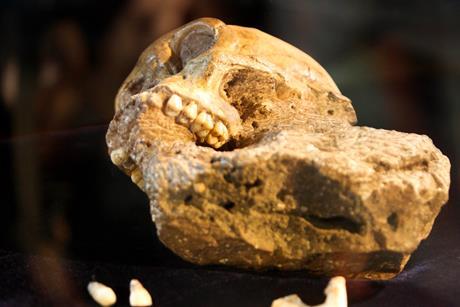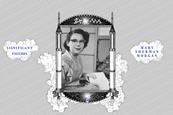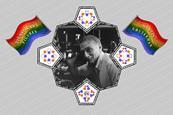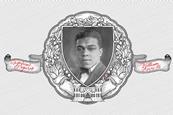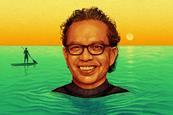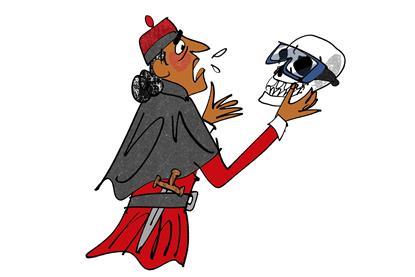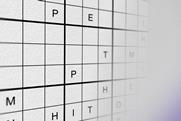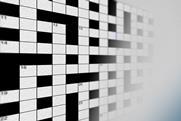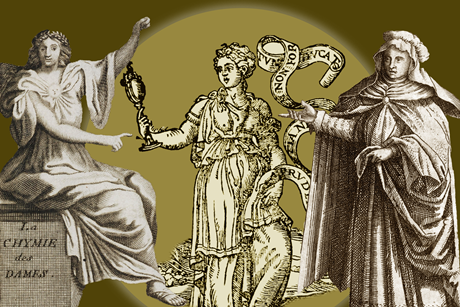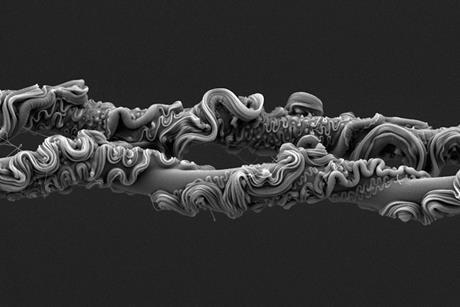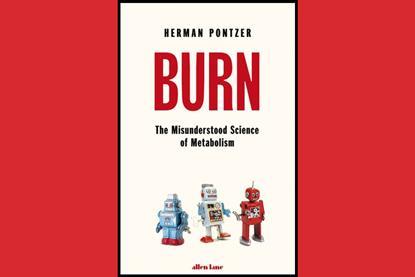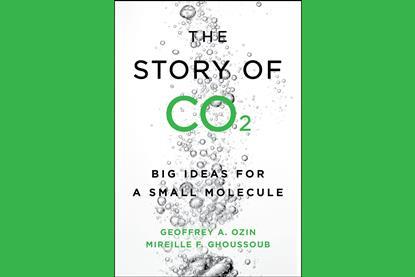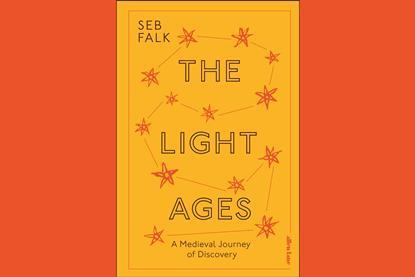News
Record-breaking chemistry experiments: from giant crystals to lemon batteries
School science staples that have set Guinness World Records
Opinion
Harrison’s bimetallic strip and the problems with temperature control
Making thermostats possible – now we need to learn how to use them correctly
Careers
Finding a home in the workshop
Departmental workshops provide support for researchers in more ways than one
News
National scientific organisations consistently underrepresent women within their membership
Change is happening slowly but institutional processes continue to stymie the progression of women
Opinion
Is that a fact, or your opinion?
When experts are sidelined or undermined, the truth needs all the allies it can get
Opinion
Chemistry has always been women’s business
Female chemists played essential roles in developing chemical practice
Opinion
As a first-generation student, I didn’t have a clue what I was doing
And that brought challenges and unexpected opportunites
News
Royal Society asks for help as it unveils interactive UK map charting memorialisation of women in science
Locations, landmarks and monuments dotted throughout the UK highlight the contributions of women
Highlights
The toxic chemistry behind skin bleaching products
The global skin-lightening market is worth over $10 billion and growing, but the unregulated products driving it contain dangerous chemicals linked to serious health risks. Zahra Khan speaks to the scientists and advocates trying to fix the problem
How the pioneers of metal-organic frameworks won the Nobel prize
From wooden models to thousands and thousands of structures, Julia Robinson tells the story of how Richard Robson, Susumu Kitagawa and Omar Yaghi won the 2025 Nobel prize in chemistry
Rethinking workplaces for neurodivergent staff
Neurodivergent people often excel in skills highly valued in chemistry. Nina Notman investigates how employers are breaking down barriers and harnessing these talents through workplace adjustments and recruitment reforms
From flying ointments to healing herbs: the forgotten chemistry behind historical witchcraft practices
The unusual concoctions of village witches have historically been dismissed as nonsense hocus pocus – but is this the whole story? Victoria Atkinson investigates the chemistry behind the myth and whether there was more to witchcraft than ritual and superstition
How stable isotope analysis reveals what ancient humans and Neanderthals ate
Analytical chemistry can tell us what our ancestors ate thousands – or even millions – of years ago. Rachel Brazil gets her teeth into the evidence
National scientific organisations consistently underrepresent women within their membership
Change is happening slowly but institutional processes continue to stymie the progression of women
Opinion
As a first-generation student, I didn’t have a clue what I was doing
And that brought challenges and unexpected opportunites
News
Royal Society asks for help as it unveils interactive UK map charting memorialisation of women in science
Locations, landmarks and monuments dotted throughout the UK highlight the contributions of women
Feature
The toxic chemistry behind skin bleaching products
The global skin-lightening market is worth over $10 billion and growing, but the unregulated products driving it contain dangerous chemicals linked to serious health risks. Zahra Khan speaks to the scientists and advocates trying to fix the problem
Opinion
Alexandra Navrotsky: ‘I don’t think you attract people to science by big initiatives’
The nanogeoscientist on the importance of people to good science, the recent turnaround on diversity, equity and inclusion and why she will never be a professional artist
Careers
Statements alone don’t make labs inclusive for disabled chemists
Leaders need to provide proactive support to disabled employees making adjustment requests
News
Royal Society of Chemistry calls for labs to become more inclusive for disabled chemists
Innovative thinking could address many of the problems that makes labs inaccessible
Mary Sherman Morgan: The best kept secret in the space race
Anna Demming reveals the scientist who invented the fuel that powered the first US satellite into orbit, yet died with barely a trace on record of her achievements
Martin Gouterman: the gay man behind the four-orbital model
Abhik Ghosh tells the story of a porphyrin chemist who was a leading figure in Seattle’s gay rights movement of the 1960s
William Knox, the only Black supervisor in the Manhattan Project
The story of the Knox family is one of education overcoming adversity, finds Kit Chapman
Veronica Vaida: ‘Some Harvard faculty expressed puzzlement at having a woman colleague’
The renowned physical chemist and environmental scientist on growing up in Romania and forging her career as a woman in the US in the 1970s
Alexandra Navrotsky: ‘I don’t think you attract people to science by big initiatives’
The nanogeoscientist on the importance of people to good science, the recent turnaround on diversity, equity and inclusion and why she will never be a professional artist
Raj Shah: ‘A good laugh in the lab is often as important as a good reagent’
The award-winning chartered chemical engineer celebrates mentoring, curiosity and lubrication
The chemist anthropologist
What new species remain to be discovered in the lab?
Why failing my first chemistry test was the best thing that ever happened to me
Lost in reactions, but driven by curiosity – how a supportive teacher enabled me to find my way to a career in science
What can biochemists learn from drama?
How my acting background helps me build my scientific skills
Chemistry wordoku #131
Complete this puzzle to find the element with Celtic connections
Cryptic chemistry crossword #122
We hope this cryptic chemistry crossword doesn’t leave you with a ’vulgar bottom! (4)’
Chemistry wordoku #130
You may want to hold your breath while you complete this sudoku-inspired puzzle
Cryptic chemistry crossword #121
Caught doing crosswords at work? ’Gather cake mix for boss (4, 6)’!
Opinion
Is that a fact, or your opinion?
When experts are sidelined or undermined, the truth needs all the allies it can get
Opinion
Chemistry has always been women’s business
Female chemists played essential roles in developing chemical practice
Opinion
Archaeon’s lack of metabolism challenges definitions of life
A question that is not the same as asking whether something is alive
Opinion
Democratising science, one step at a time
Artifical intelligence is just the latest method to open up chemistry to more people
Opinion
What makes a scientific breakthrough truly chemical?
Why MOFs are a great choice for the Nobel prize in chemistry
Opinion
The conceptual challenge of consumer safety
Understanding causation can motivate product improvements
Opinion
What the smell of benzene tells us about the world
A philosophical discussion about how much we can trust our senses
Opinion
How feminist bioethics can improve women’s health
From correcting research imbalances to placing value on lived experiences
Opinion
What can biochemists learn from drama?
How my acting background helps me build my scientific skills
News
'Chemistry is incredibly complicated’: The interface between chemistry and art
Liverpool PhD student Emma Brass talks to Chemistry World about her AI-powered art installation
Opinion
Odile Eisenstein: ‘Some of the most important advice is to be persistent’
The pioneering theoretical chemist on teaching herself programming and the importance of freedom
Opinion
Harrison’s bimetallic strip and the problems with temperature control
Making thermostats possible – now we need to learn how to use them correctly
Opinion
Chemistry has always been women’s business
Female chemists played essential roles in developing chemical practice
Opinion
When we ate whales for breakfast
A reminder that technological developments aren’t sufficient to solve environmental problems
Feature
The toxic chemistry behind skin bleaching products
The global skin-lightening market is worth over $10 billion and growing, but the unregulated products driving it contain dangerous chemicals linked to serious health risks. Zahra Khan speaks to the scientists and advocates trying to fix the problem
Opinion
Alexandra Navrotsky: ‘I don’t think you attract people to science by big initiatives’
The nanogeoscientist on the importance of people to good science, the recent turnaround on diversity, equity and inclusion and why she will never be a professional artist
Careers
Finding a home in the workshop
Departmental workshops provide support for researchers in more ways than one
News
‘Ukrainians are a strong nation – we persevere’: Four years on scientists remain resilient in face of adversity
Researchers in Ukraine hold on to hope and plan for a future after the war ends
Opinion
How to grow an enormous single crystal
Top tips from David Boyce and his class, who have cultivated a 3kg single copper sulfate crystal
Careers
Is work polygamy a new trend or the daily norm for researchers?
While many academics balance more than one role, some take on entirely separate jobs that allow them to explore different careers
News
Collaborating with a Nobel laureate may actually hinder chances of winning a Nobel prize
Research suggest that those who work alongside laureates may not be seen as original thinkers
News
Record-breaking chemistry experiments: from giant crystals to lemon batteries
School science staples that have set Guinness World Records
Opinion
Is that a fact, or your opinion?
When experts are sidelined or undermined, the truth needs all the allies it can get
News
Royal Society asks for help as it unveils interactive UK map charting memorialisation of women in science
Locations, landmarks and monuments dotted throughout the UK highlight the contributions of women
News
The need for science diplomacy in a fragmenting world
After receiving a US science diplomacy prize, Chemistry World talks to Martyn Poliakoff and Richard Catlow about global scientific challenges, their love of technicians and being astounded by children’s questions
Opinion
How to grow an enormous single crystal
Top tips from David Boyce and his class, who have cultivated a 3kg single copper sulfate crystal
News
Public values scientists but fewer feel informed about science, UK survey finds
Survey will provide government with insights on how the public perception of science could be improved
News
One year on, Trump’s second term has upended US science
Fears that the president’s return to the White House would seriously damage science agencies and universities have been borne out





